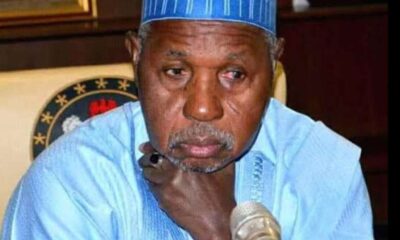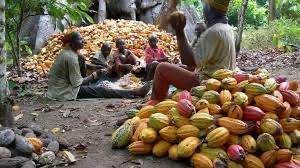
News
Presidency rejects World Bank report claiming 139 million Nigerians live in poverty

The Presidency has disputed the latest economic report by Nigeria’s biggest multilateral lender, the World Bank, which estimated that 139 million citizens were living in poverty, describing the figure as “unrealistic” and detached from the country’s economic realities.
President Bola Tinubu’s Special Adviser on Media and Public Communication, Sunday Dare, said in a post on his official X handle on Wednesday that the poverty figures must be “properly contextualised” within the limits of global poverty measurement models.
“While Nigeria values its partnership with the World Bank and appreciates its contributions to policy analysis, the figure quoted must be properly contextualised. It is unrealistic,” Dare said.
The Presidency explained that the 139 million figure was derived from the global poverty line of $2.15 per person per day, set in 2017 using Purchasing Power Parity, and should not be mistaken for an actual headcount of poor Nigerians.
It noted that when converted to nominal terms, the $2.15 benchmark equals about N100,000 per month at current exchange rates, which is well above Nigeria’s new minimum wage of N70,000.
“There must be caution against interpreting the World Bank’s numbers as a literal, real-time headcount. The estimate is derived from the global poverty line of $2.15 per person per day, a benchmark set in 2017 Purchasing Power Parity terms. If converted nominally, that figure equals about $64.5 per month, or nearly N100,000 at today’s exchange rate, well above Nigeria’s new minimum wage of N70,000. Clearly, the measure is an analytical construct, not a direct reflection of local income realities.

“Poverty assessment under PPP methodology uses historical consumption data (Nigeria’s last major survey was in 2018/19) and often overlooks the informal and subsistence economies that sustain millions of households. The government, therefore, regards the figure as a modelled global estimate, not an empirical representation of conditions in 2025. What truly matters is the trajectory, and Nigeria’s is now one of recovery and inclusive reform,” the statement added.
According to the former minister, poverty estimates under the PPP methodology rely on historical consumption data, often overlooking the vast informal and subsistence economies that sustain millions of Nigerian households. The government, therefore, considers the World Bank’s estimate as “a modelled global projection, not an empirical representation of living conditions in 2025.”
He stressed that what truly matters is not the static figure but the direction of change. It said Nigeria’s economy is now on a recovery and reform trajectory, driven by policies designed to ensure inclusive growth and social protection.
It noted that the current administration had expanded a number of welfare and intervention programmes aimed at cushioning the impact of recent reforms, while laying the groundwork for long-term prosperity.
Among the key initiatives Dare highlighted are, “Conditional Cash Transfers: Expanded to reach up to 15 million households nationwide, with verified digital enrolment through the National Social Register. Over N297 billion has been disbursed since 2023 to poor and vulnerable families. Renewed Hope Ward Development Programme: A major new initiative targeting all 8,809 electoral wards, delivering micro-infrastructure, livelihoods, and social services directly at the community level.
“National Social Investment Programmes: Strengthened components such as N-Power, GEEP micro-loans (TraderMoni, MarketMoni, FarmerMoni), and Home-Grown School Feeding to protect jobs, encourage small enterprise, and keep children in school. Food Security Initiatives: Distribution of subsidised grains and fertilisers, mechanisation partnerships, and the revival of strategic food reserves to curb inflationary pressure on staples.
“Renewed Hope Infrastructure Fund: Financing critical energy, road, and housing projects to lower living costs and stimulate local employment, National Credit Guarantee Company: Expanding affordable credit to small businesses, women, and youth entrepreneurs through risk-sharing mechanisms with commercial banks.”
The Presidency maintained that the Tinubu administration was tackling Nigeria’s poverty challenge by addressing the structural distortions that have constrained productivity and inclusive growth for decades.
It cited ongoing reforms such as fuel subsidy removal, exchange rate unification, and the fiscal reallocation of funds toward productive sectors, describing them as “painful but necessary choices” to fix the root causes of poverty rather than its symptoms.
“Even the World Bank itself has acknowledged that these reforms are already restoring macroeconomic stability and growth momentum,” the statement added, referencing recent remarks by World Bank officials acknowledging signs of economic recovery under the Tinubu administration.
The government emphasised that economic recovery alone is not enough unless it translates into real welfare gains for ordinary Nigerians.
According to the statement, the administration’s medium-term priority is to ensure that macroeconomic stability leads to affordable food, quality jobs, and reliable infrastructure.
Investments are being ramped up in agriculture, manufacturing, and power reliability, including new gas-to-power projects and skill development hubs expected to boost job creation and reduce living costs.
“Nigerians should begin to feel more visible improvements in food prices, income, and purchasing power as these programmes mature,” the statement said.
The Presidency added that the administration is consolidating its social protection architecture by integrating all welfare programmes under a unified, data-driven framework to enhance transparency and accountability.
This integration includes expanding the National Social Register and scaling up existing NSIP schemes, ensuring that “no vulnerable community is left behind.”
The Presidency concluded by reaffirming President Tinubu’s commitment to building “a resilient and inclusive economy” where growth directly improves living standards.
“Nigeria rejects exaggerated statistical interpretations detached from local realities. The government remains focused on empowering households, expanding opportunity, and laying the foundation for a fairer, more prosperous nation,” the statement concluded.
Earlier on Wednesday, the global lender expressed concern that despite Nigeria’s recent economic stabilisation efforts, about 139 million Nigerians are now living in poverty, warning that the country risks losing hard-won reform gains if policies are not translated into tangible improvements in citizens’ welfare.
The World Bank Country Director for Nigeria, Mathew Verghis, disclosed this at the launch of the October 2025 Nigeria Development Update titled, “From Policy to People: Bringing the Reform Gains Home.”
Verghis, in his address, commended Nigeria’s bold reforms in the exchange rate and petroleum subsidy regimes, describing them as “foundational” steps that could reshape the country’s long-term economic trajectory
“Over the last two years, Nigeria has commendably implemented bold reforms, notably around the exchange rate and the petrol subsidy. These are the foundations on which the country has the opportunity to build a programme that can transform its economic trajectory,” he said.
He likened the current reform window to the historic policy shifts seen in countries like India in the early 1990s, noting that such rare opportunities must be seized decisively or risk being lost.
According to him, the reforms are already yielding results, growth is picking up, revenues have risen, debt indicators are improving, the foreign exchange market is stabilising, reserves are climbing, and inflation is gradually easing.
“These results are exactly what you need to see in a stabilisation phase. These are big achievements, and many countries would envy them,” he noted.
However, the World Bank chief cautioned that these macroeconomic improvements had yet to translate into improved living conditions for ordinary Nigerians.
“Despite these stabilisation gains, many households are still struggling with eroded purchasing power. Poverty, which began to rise in 2019 due to policy missteps and external shocks such as COVID-19, has continued to increase even after the reforms. In 2025, we estimate that 139 million Nigerians live in poverty,” he revealed.
The new figure indicates a sharp increase from 129 million recorded in April 2025 and 87 million in 2023, reflecting the deepening hardship among households despite ongoing economic reforms.
News
Ex-Speaker, Aminu Masari, lists four conditions to bridge gap between campaign promises and realities
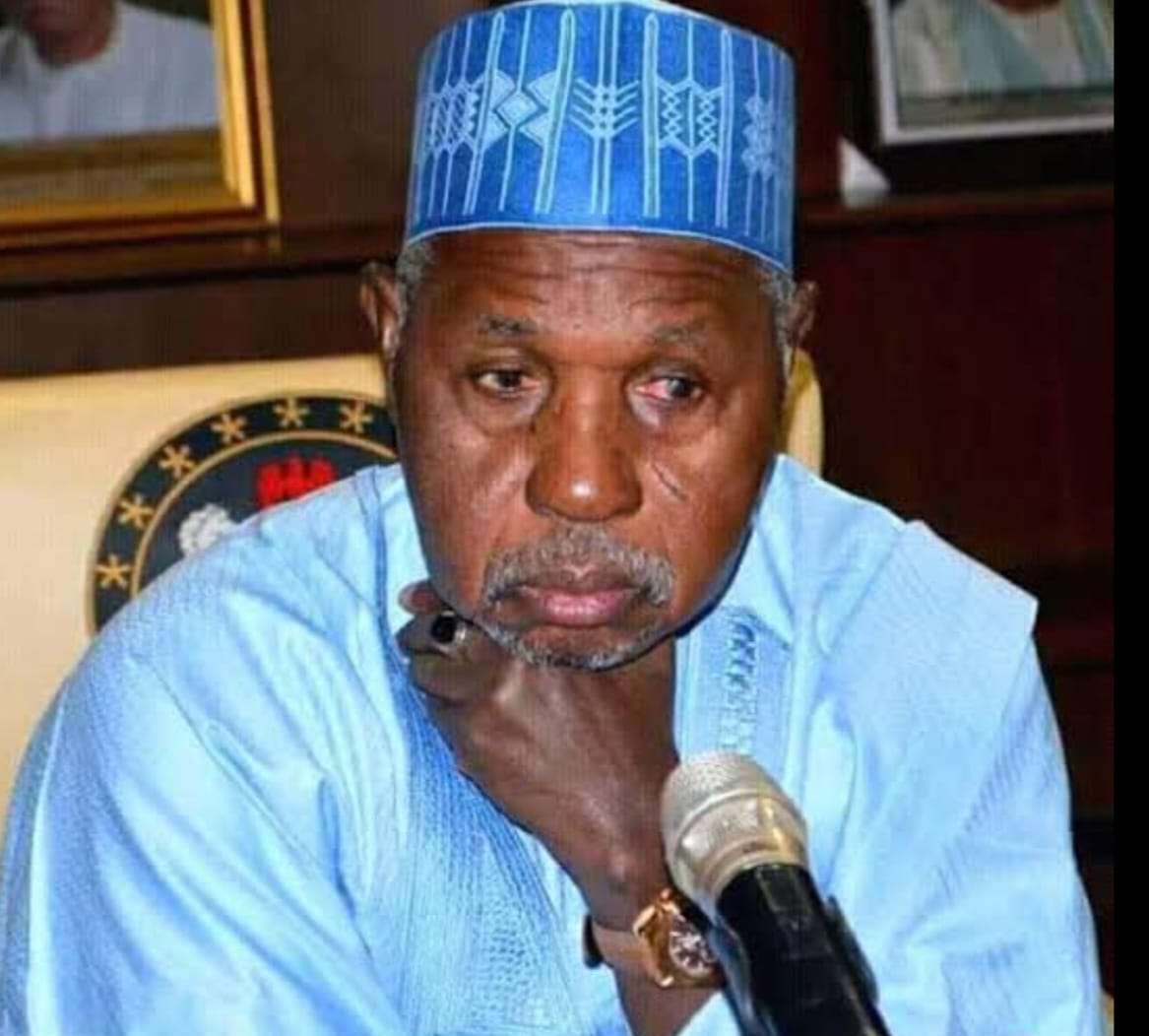
The former Speaker of the House of Representatives and former Governor of Katsina State, Rt. Hon. Aminu Bello Masari has lamented the yawning gap between campaign promises by politicians and realities of governance on the ground.
Delivering the Keynote Address at the 9th Annual Conference of the Guild of Corporate Online Publishers (GOCOP) in Lagos, Masari, who spoke on the theme: Reconciling Campaign Promises with Governance Realities: Challenges and Prospects, listed four conditions to bridge such gaps in the interest of democracy.
To Masari, political actors must campaign with responsibility, insisting that such campaign promises should be realistic, costed and achievable within the available resources.
“Unrealistic pledges made merely to capture the mood of the electorate should be challenged and exposed. Only then can we begin to elevate our political culture and make sure that the process justifies the end. Second, governance must be anchored on strong institutions. With capable institutions, policies can be implemented more consistently and transparently.”
According to him, the third leg must imbibe honest communication with citizens by political leaders. He tasked leaders to explain the trade-offs — why certain promises may take longer, why resources must be reallocated and how progress will be measured.
“Fourth, citizens themselves, including civil society and the media, must understand realities and properly communicate those realities in addition to holding leaders accountable. They should track promises, and demand transparency instead of creating sensational headlines to attract followers, especially now that the number of followers translates into monetary gain.”

Looking at the challenges before political leaders in fulfilling campaign promises, the former Katsina State governor named limited resources, competing demands and unexpected crises.
“Many manifestos are aspirational documents, not grounded in the reality of available resources or institutional capacity. Fiscal constraints are also a big factor. Campaign promises hinge on the resources available to any country. In many African nations — and more specifically in our case — budgets are still heavily dependent on a single commodity: oil. Yet, as we all know, the price of oil is beyond our control. It is volatile, shaped by global market forces, geopolitical tensions, and other complex and unpredictable factors.”
He said beyond resource volatility, there are also unforeseen emergencies that force governments to reorder their priorities with COVID-19 as a vivid example. He said such emergencies consume time, energy and resources and compel governments to suspend plans and promises across all sectors, resulting in campaign promises suffering in the long run.
“Here in Nigeria, insecurity remains a persistent challenge. It undermines production, disrupts livelihoods and reduces national revenues. It compels government to divert enormous resources toward security operations. Another major issue is weak institutions. Even when funds are available, corruption, bureaucracy and inefficiency can derail delivery.”
He concluded that reconciling campaign promises with governance realities is not just about avoiding embarrassment for politicians but about protecting the integrity of democracy itself.
The keynote speaker warned that if citizens repeatedly see promises made and broken, they lose faith in the system.
“But if they see even modest progress explained honestly and delivered consistently, they will continue to believe in the promise of democracy. Let our promises be realistic, our expectations be modest, our governance transparent and our accountability strong. In doing so, we can transform hope into progress, and democracy into a vehicle of real change.”
He commended the EXCO and members of GOCOP on its 9th anniversary and consistently creating platforms for the people to have honest conversations about the future of our democracy.
“This is where journalism at its best, and more specifically GOCOP in this digital age, becomes indispensable. You and your profession are the bridges between the leaders and the people. You shape narratives, hold leaders accountable and track progress.”
News
Enugu Gov, Exco, Lawmakers defect to APC Tuesday
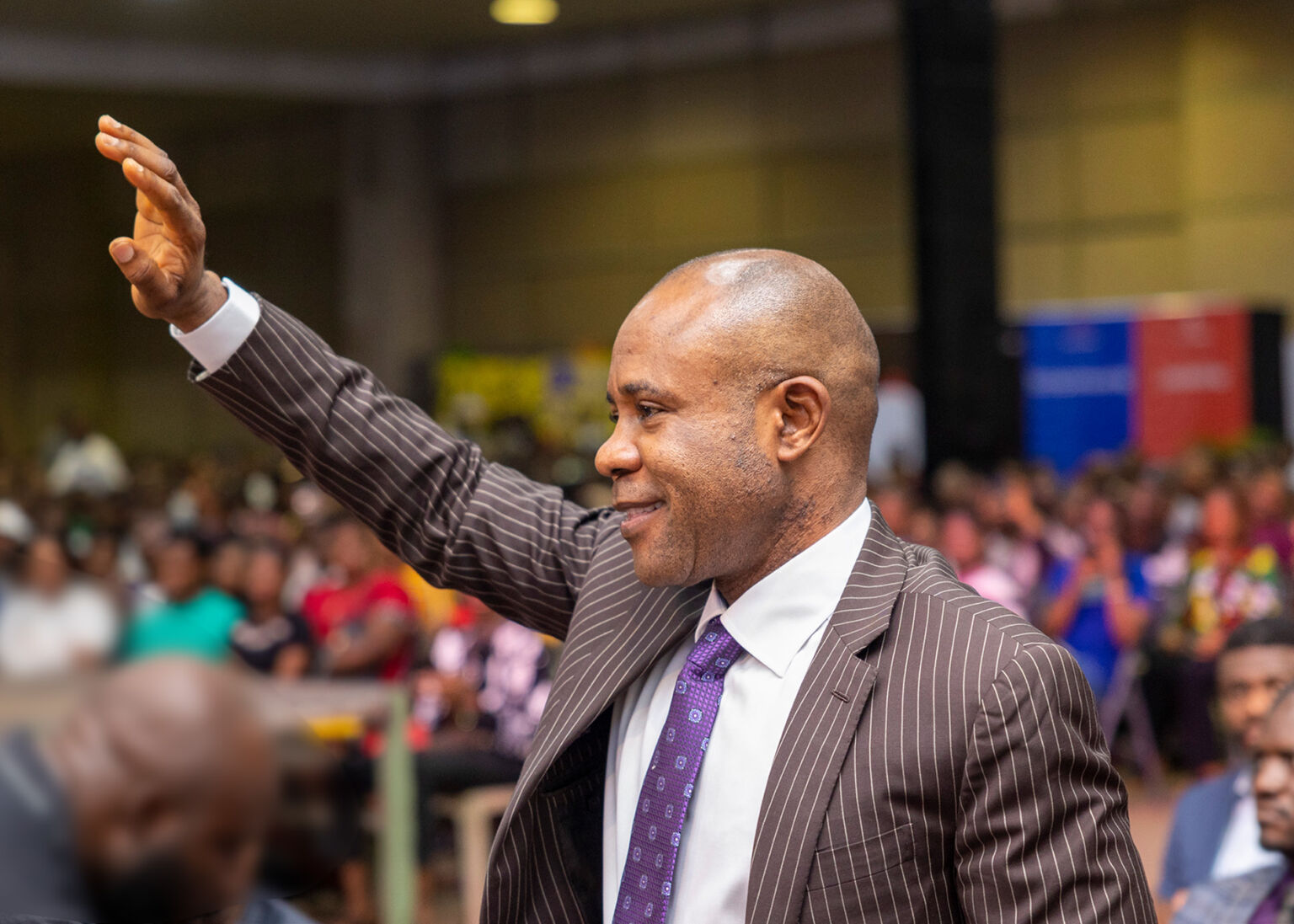
The governor of Enugu State, Peter Mbah, has dumped the Peoples Democratic Party (PDP) for the All Progressives Congress (APC).
This was confirmed by the Enugu APC Caretaker Chairman, Dr Ben Nwoye, while speaking to journalists on Friday.
According to him, Mbah will officially defect to the ruling party on Tuesday, October 14, 2025, in Enugu, alongside federal and state lawmakers, the state executive council members, and ward and local government leaders across Enugu State.
The APC National Working Committee (NWC) on Thursday dissolved the Enugu State Working Committee (SWC) over unresolved differences, appointing a seven-member caretaker committee to oversee the affairs of the party.
The wave of defections from opposition parties to the All Progressives Congress (APC) has continued to grow.
A few months ago, Akwa Ibom State Governor Umo Eno and his Delta State counterpart, Sheriff Oborevwori, both left the Peoples Democratic Party (PDP) to join the APC.

During the defection ceremonies held in Uyo and Asaba, the former APC National Chairman, Dr. Abdullahi Ganduje, revealed that more opposition governors and top party leaders were preparing to cross over to the ruling party.
On October 8, Kelvin Chukwu, the Senator representing Enugu East, also announced his defection from the Labour Party (LP) to the APC.
His move raised the number of APC senators to 73, giving the party a two-thirds majority in the 109-member Senate — a threshold that allows it to easily pass major decisions and legislation.
At the moment, the Senate’s composition stands as follows: APC, 73 senators; PDP, 28; LP, four; All Progressives Grand Alliance (APGA), two; and one each from the Social Democratic Party (SDP) and the New Nigeria Peoples Party (NNPP).
News
Ben Nwoye returns as Enugu APC Chairman after dissolution of Agballah-led exco
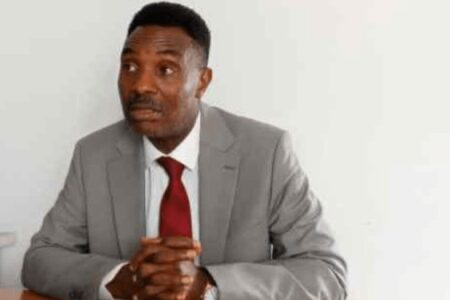
• Ex-Speaker Odoh appointed Secretary
The All Progressives Congress, APC, has dissolved the Enugu State working Committee of the party.
This is preparatory to the detection of Governor Peter Mbah to the ruling party.
The dissolution of the former party executive led by Ugochukwu Agballah came barely 2 days after the Minister of Innovation, Science and Technology, Uche Nnaji resigned over alleged certificate forgery.
Nnaji is an ally of Agballah, the now ex-chairman of APC in Enugu State.
Agballah and Nnaji had seriously opposed Mbah’s defection to the party.
However, Nwoye and other foundation members of the APC insisted that the governor is gladly welcome to the party.

Rising from its 179th meeting in Abuja on Thursday, the APC National Working Committee, NWC, dissolved the Agballah-led SWC with immediate effect.
In its place, former chairman of the party in the state, Barr Ben Nwoye is now the new helmsman of the party in the state.
A former Speaker of the Enugu State House of Assembly, Barr Eugene Odo is the Secretary of the 7-man caretaker committee.
Resolution taken during the meeting was signed by Hon. Durosinmi Meseko, Deputy National Publicity Secretary of the APC.
It reads in parts:
The National Working Committee (NWC) of the All Progressives Congress (APC) held its 179th meeting at the Party’s National Secretariat, Abuja, on Thursday, 9th October, 2025, presided over by the National Chairman, Prof. Nentawe Goshwe Yilwatda.
“At the conclusion of the meeting, the following resolutions were reached:
1. Dissolution of Enugu State Executive Committee and Appointment of Caretaker Committee
The NWC approved the dissolution of the APC Enugu State Executive Committee with immediate effect, following a comprehensive review of the state of the Party in Enugu State.
Consequently, a seven (7) member Caretaker Committee has been constituted to oversee the affairs of the Party in the State.
The Committee, which will be inaugurated on Friday, 10th October, 2025, at 10:00 a.m. at the Party’s National Secretariat in Abuja, is composed as follows:
Dr. Ben Nwoye – Chairman
H.E. Mrs. Fidelia Njeze – Member
Comrade Peter Chime – Member
Dr. (Mrs.) Oby Ajih Member
Dr. Chiedozie Nwafor – Member
Engr. Emma Ekeh – Member
Rt. Hon. Eugene Odoh – Secretary
Details of the APC resolution:


-

 News1 day ago
News1 day agoBREAKING: Tinubu grants 175 persons presidential pardon
-

 News2 days ago
News2 days agoAtiku backs Sowore-led protest, demands immediate release of Nnamdi Kanu
-

 News3 days ago
News3 days agoWhy I resigned, Nnaji explains, denies wrongdoing
-

 News1 day ago
News1 day agoCertificate Scandal: CASER asks Enugu Attorney General to prosecute Ex-minister Nnaji
-

 News3 days ago
News3 days agoCooking Gas: Scarcity, price hike artificial, middlemen exploiting customers — NALPGAM
-

 News2 days ago
News2 days agoRMRDC targets 30% Value Addition Policy on Export of Local Raw Materials
-

 News1 day ago
News1 day agoTinubu nominates Kogi’s Prof. Amupitan as INEC chairman
-

 News1 day ago
News1 day agoSSANU/NASU protest paralyses activities at UNN




